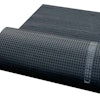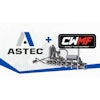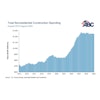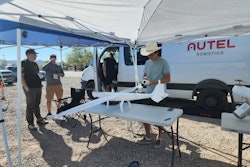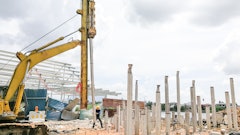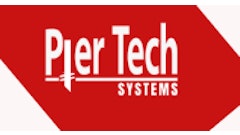
The Build America, Buy America Act (BABA), enacted as part of the Infrastructure Investment & Jobs Act (IIJA) on Nov. 15, 2021, requires iron, steel, manufactured products and construction materials used in infrastructure projects funded by federal financial assistance to be produced in the United States.
The Federal Highway Administration says the policy for Buy America provides for:
- a domestic manufacturing process for any steel or iron products (including protective coatings) that are permanently incorporated in any project funded under Title 23
- alternate bid provisions
- minimal usage criteria for non-domestic products
- a waiver process based on public interest or the availability of domestic products
While the construction industry supports utilizing American labor and materials, these provisions would make it much more difficult for the construction industry to use basic construction materials not sourced in the U.S., driving up cost and completion times. In fact, the waiver process for Buy America, which would be applicable to each federally-funded project, would create a bureaucratic and overly burdensome process that would require thousands of waivers on federal highways projects alone. The U.S. Department of Transportation (USDOT) has issued only five Buy America waivers in four years.
Worries Over Expanded Coverage Under IIJA
The IIJA expanded Buy America coverage to certain construction materials used on federal-aid highway and transit projects. Construction materials are listed as “an article, material, or supply—other than an item of primarily iron or steel.
Initial guidance from the White House Made in America Office (MIAO) listed non-ferrous metals; plastic and polymer-based products (including polyvinylchloride, composite building materials, and polymers used in fiber optic cables); glass (including optic glass); lumber; and drywall as categories of materials for which domestic manufacturing will be required. The IIJA explicitly exempted aggregates and pavement-related materials from coverage.
Other Products Exempt from Buy America as of August 2022 are:
- A manufactured product
- Cement and cementitious materials
- Aggregates such as stone, sand or gravel
- Aggregate binding agents of additives
This exemption is important for the asphalt industry as 12 percent of binder materials are imported, and 88 percent of that comes from Canada.
"Those imports would be subject to Buy America restrictions and could not be used in federally funded projects without applying for project-based waivers, which are difficult to obtain," the National Asphalt Pavement Association says. "Due to refinery and transportation logistics, meeting the current asphalt demand from other U.S. regions is not enough to fill the gap between supply and demand."
Last week, the American Road & Transportation Builders Association (ARTBA) urged the US DOT to take a collaborative approach with the transportation construction industry and consider various options for implementing the new requirements. ARTBA noted the importance of this approach given the record federal surface transportation investment in the IIJA, which is expected to increase demand for a number of commodities, and unprecedented cost spikes and limited availability for many materials.
ARTBA’s comments to U.S. DOT expressed concern over putting the full onus of Buy America compliance on contractors and with the looming deadline of the waiver delay of Nov. 10.
"We are troubled by reports that as the November 10th expiration of the current waiver nears, some state recipients simply plan to put the full onus on contractors for finding a way to comply," ARTBA said. "Besides the obvious impracticality of this approach, it represents another example of risk imposed on the prime contractor, a common industry concern in a number of areas. This will likely lead to higher project costs, as contractors incorporate risk associated with their newfound unilateral responsibilities for Buy America compliance into the pricing of their bids."
Relating to construction materials and manufactured products, the industry supports:
• Reaffirmation that Buy America coverage only applies to relevant components permanently incorporated in projects
• Clear exemption from Buy America coverage for aggregates and other pavement-related materials – as well as manufactured products using them – as specified in the IIJA and initial guidance from MIAO.
• Continued waiver of coverage for manufactured products not predominantly comprised of iron, steel or relevant construction materials, as well as a “common sense” exemption for commercially available off-the-shelf (COTS) products like nuts, bolts, washers, nails, tie wires and others.
The industry continues to be concerned with any further hindrances to productivity in an already challenging construction environment so that we can see the full benefit from the IIJA.
"The IIJA’s historic investment levels should result in equally unprecedented economic benefits over several years, provided that regulatory barriers and conflicting federal policies are minimized," ARTBA said. "We want to continue the conversation on BABA to avoid policy conflicts, account for current market challenges, and best achieve the intended purposes of both Buy America and the IIJA’s surface transportation title as a whole."


